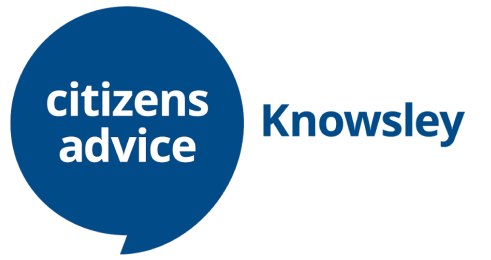About the Campaign:
In 2015 Knowsley CAB launched the ‘On Hold and Left in the cold’ campaign which aimed to identify problems the public face when making enquiries regarding key issues in people’s day to day lives, such as benefits, tax credits or energy enquiries.
Our campaign focused on DWP (Department for Work and Pensions) and HMRC (HM Revenue and Customs). DWP are responsible for welfare, pensions and child maintenance policy. They are the UK’s biggest public service department, in charge of administering the state pension and co-ordinating age, disability and ill health benefits to over 22 million people. HMRC are the UK’s tax and customs authority responsible for ensuring that money is available to fund the UK’s public services and helping individuals and families with financial support.
Download Full Report: On hold left in the cold report (Word Document)
General Data
- 2011 census established the Knowsley population was 145.893, made up of approximately 52% males and 48% female. Increased to 146,086 according to estimates from Knowsley public health compendium.
- Knowsley has a higher % rate than the rest of the country for mental health conditions. It is also in the top 10 of clinical commissions prescribing antidepressants.
- 12.2% of people in Knowsley are unpaid carers. Over 35,700 (24.5%) of residents claim their day to day activities are affected in some way by their health and 9.5% consider themselves to be in bad or very bad health.
- Knowsley is ranked 355/379 districts on skills and qualifications score, indicating a resident workforce that performs in the bottom 20% of district by national standards.
- Residents aged 16-64 in employment stands at 66,700 (71.8%), there are 5,300 (7.9%) unemployed residents, according to the ONS annual population survey July 2014-June 2015.
- Average wages in 2015 were £474.90 for full time workers based on 40 hours per week.
- The gender gap in earnings is £105 per week between male and female workers.
- There are 61,323 properties in Knowsley, the average price being £108,960 according to the Land Registry House Price Index October 2015.
Results
We had 77 people answer our survey. Here are the findings that we derived from the data:
- HMRC was the most commonly called organisation with 37 people calling
- The most common enquiry calling this organisation was regarding tax credits and child tax credits
- Between the 37 respondents who called HMRC, a total of 145 attempts were made to call for advice. Average of 3.9 attempts per person.
- 20 out of 37 people had a minimum waiting time of 20 minutes. 7 people waited for over an hour and only 2 people had a waiting time of less than 10 minutes.
- 16 people got through to an advisor. Nobody who waited over an hour got through to an advisor and only 6 people found the advice useful.
- 1 person ran out of credit after waiting an hour. 14 people were cut off (6) or gave up (8).
- 34 out of 36 people were unhappy with their waiting time.
- Out of 14 people who answered, 13 people knew the call would cost money.
In conclusion the experience using HMRC was generally unsatisfactory. The average number of attempts were nearly 4 per person and people were left waiting for unreasonable lengths of time.
Lin Homer, HMRC’s chief executive has since stepped down following the appalling level of customer service in her failing department. Figures showed that a quarter of calls went unanswered despite £45 million of tax payer’s money to recruit an extra 3,000 staff to address the problems in call centres – this led to no improvement.
The cost of calling charges is another key issue and Citizen’s Advice are seeing growing numbers of DWP and HMRC customers coming to the bureau to use the phone as they cannot afford the costs.
Proposals
We recommend that HMRC and DWP be held more accountable for failing to provide quality service. This has somewhat been met in the Public Accounts Committee hearing and through backlash in the media. But as she steps down in April, with a damehood, how are the services to the ordinary public improved?
Both departments should offer a Freephone service to clients who are reliant on benefits and tax credits. Claimants do not have the disposable income to cover these additional and unnecessary costs.
We request DWP to reconsider their decision to remove telephones out of job centres. Not everyone has internet access or computer skills. Hence people come into Citizens Advice regarding this which takes up a lot of time.
It is clear that Knowsleys’ economy is heavily dependent on benefit income and tax credits. Therefore, any changes to the welfare system will have an enormous effect on the financial circumstances of Knowsley residents.
We encourage those reading this report to highlight the issues to their local MP and raise awareness.
